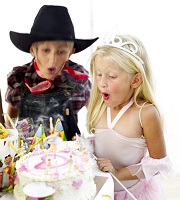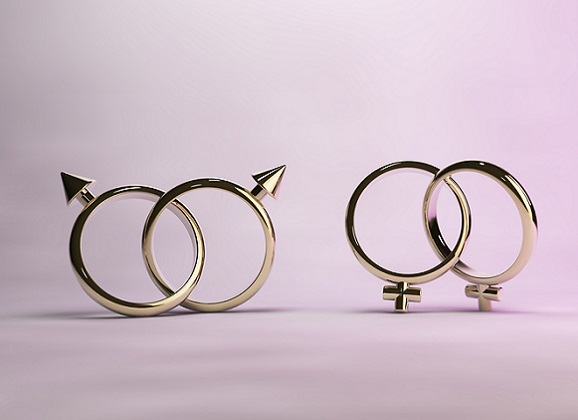Linda Gellman Levin holds a dual Master’s Degree in Early Childhood Education and in Special Education. In this new exclusive SmartFem column Linda will address your tough questions on the difficult and important job of raising children. askLinda@SmartFem.com
Is There a Possibility Your Child may be Gay?
 The first thing we do as a parent is count our babies five fingers and five toes to check to see if our baby is healthy and “normal.” As we plan for our child’s future, we do our best to provide a nurturing and loving home, filled with toys, activities, and hopefully unconditional love.
The first thing we do as a parent is count our babies five fingers and five toes to check to see if our baby is healthy and “normal.” As we plan for our child’s future, we do our best to provide a nurturing and loving home, filled with toys, activities, and hopefully unconditional love.
But what happens if our sons and daughters sexuality is not heterosexual, but homosexual or other orientation? How do we react and feel then? Often parents may deny that their child could not be straight and believe they will outgrow it. Some parents believe they could send their child to a religious counselor who will change their child to heterosexual. There are even parents who will reject their child and will no longer allow them to be a part of their family due to embarrassment or humiliation that they bear with a child who does not fit their “norm.” There may be a period of time that parents might grieve the loss of a “normal” child and will need time to accept that their child may have a different life from what they were hoping.
We may have started our journey in parenting a boy or a girl by buying into gender clothes, toys, rooms, activities and sports. We might have not considered that our son would prefer to wear pink clothes over blue or our daughters would prefer not be dressed in a frilly dress and chooses to instead wear “tom-boyish” clothes. This may make us feel uncomfortable as a parent, or unable to know how to handle this situation.
 The research shows that it is not uncommon for preschool through kindergarten aged boys and girls to dress in the opposite sex or play dress up by wearing makeup/outfits when acting or role playing a doctor, nurse, pirate, policeman, fireman, etc. Parenting.com suggests that this type of play and role playing has no bearing on a child’s sexual orientation. The only time that it may be significant is if your child continues this behavior over a long period of time, according to J. Michael Bailey, a professor at Northwestern University.
The research shows that it is not uncommon for preschool through kindergarten aged boys and girls to dress in the opposite sex or play dress up by wearing makeup/outfits when acting or role playing a doctor, nurse, pirate, policeman, fireman, etc. Parenting.com suggests that this type of play and role playing has no bearing on a child’s sexual orientation. The only time that it may be significant is if your child continues this behavior over a long period of time, according to J. Michael Bailey, a professor at Northwestern University.
A child does not choose to be gay, but the research shows there are biological explanations for this. “Biological factors may involve a complex interplay of genetic factors and the early uterine environment,” according to The Royal College of Psychiatrists. There have been studies to point out that there are differences in the physical biology between gay and lesbian men and women. For example, a study done at University of California at Berkeley stated that “the VIP SCN nucleus of the hypothalamus is larger in men than in women, and larger in gay men than in heterosexual men.”
Ladies Home Journal reports that according to the Journal of Adolescent Health, about one-third of gay, lesbian, transgender and bisexual teens report an attempt at suicide. There is a tremendous amount of bullying to a gay child while they are attending school. This can be very frightening, hurtful, demeaning, and reduce their self esteem as they develop. These children may need additional support, counseling, and a supportive home environment to get through these critical years. Often high schools and colleges will have clubs and groups that will help them feel they are not alone and supported by other members.
As a parent, what could you do to provide a safe environment for your child if you suspect they may not be heterosexual?
- Be open to topics on sexuality as your child begins to ask you questions from preschool age throughout their development. Be careful not to make any derogatory or discriminatory statements about sexual orientation, race, nationality, religion, etc.
- Bring articles home to discuss openly at the dinner table to see if your child has an opinion one way or the other.
- Purchase non-gender based toys that your children can be exposed to. Such as puzzles, Legos, games, etc.
- Read and purchase books on gender and sexuality that can be discussed together. Discuss bullying openly and tell your child that you will never allow someone to hurt him or her in your home and will try to protect your child at school.
- Share stories of family members, friends, or people in the media that are openly not heterosexual and the happiness they have found within their lives.
- If you are uncomfortable discussing the possibility of your child being gay, go talk to a professional in the field that can give you other suggestions or do family therapy to help your child and you as a parent be united.
You may want as a parent to talk to an organization such as GLAAD or a local gay-straight alliance in your community. This may guide you and help you through the process of acceptance of the possibility your child may be gay. Remember no matter what your child’s sexuality is, it is important to love your child for who they are.


















